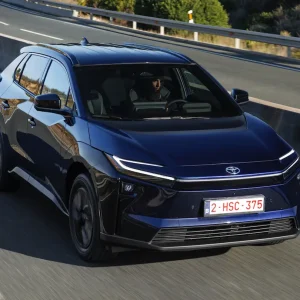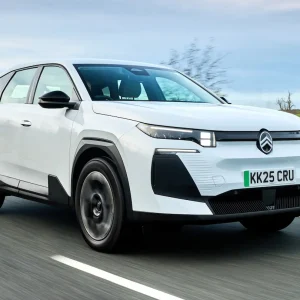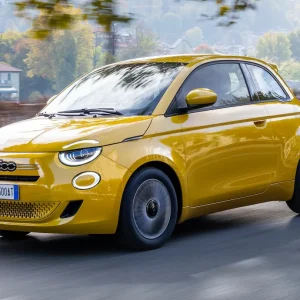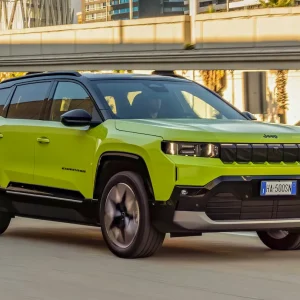With significant changes to the capital allowance bands coming next April, Toyota‘s hybrid version of the Yaris could offer fleets a financially savvy way into the supermini sector.
From April 2013 the 100% writing-down allowance drops from 110g/km to a CO2 figure of just 95g/km. The Yaris Hybrid comes in at between 79g/km and 85g/km, making it the lowest-CO2 car around that doesn’t require plugging into the mains from time to time.
To get to this figure Toyota has used a 74hp 1.5-litre petrol engine and a 60hp electric motor, although at any one time maximum power is limited to 100hp in order to keep that CO2 figure down.
While a supermini won’t suit all fleets or drivers, those who choose the hybrid version of the Toyota Yaris will be rewarded with very low running costs. For instance, not only is the CO2 low, but the official mpg figure is correspondingly high, at 80.7mpg for the best-selling T4 version, and only marginally lower for the T-spirit model with larger (and therefore less efficient) wheels and tyres.
On top of this, the residual value is 39% according to Cap figures quoted by Toyota, which is greater than the Volkswagen Polo.
Unlike its bigger sibling, the Auris Hybrid, the Yaris doesn’t lose any boot space to the hybrid system and batteries as it was designed from the outset to be a hybrid car. The result is a large boot and decent rear-seat legroom.
The car does, however, differ visually from the conventionally powered Yaris with a new front grille, bumper and lights as well as new rear lights. For the moment, this new styling will remain only available on the hybrid, although Toyota hasn’t ruled out the changes also appearing on the rest of the Yaris range later in the year.
To drive, the Yaris is comfortable, smooth and quiet. It misses the fun element of other superminis, but what is impressive is that good real-world fuel consumption should also be achievable, which runs contrary to the common perception of hybrids. On the car’s launch, BusinessCar achieved 67mpg, with no effort to drive economically, and 74mpg by using the ‘eco’ engine mode and with only a modicum of eco-driving. That may not be the 80.7mpg officially claimed, but it’s still impressive and better than many diesels in the sector. What was also noticeable was that the mpg figure climbed further with in-town driving.
So if you have drivers that spend a lot of time in town, rather than on the motorway, then this Yaris supermini looks like a winning bet for fleets.
|
||||||||||||||||||||||||||||||





